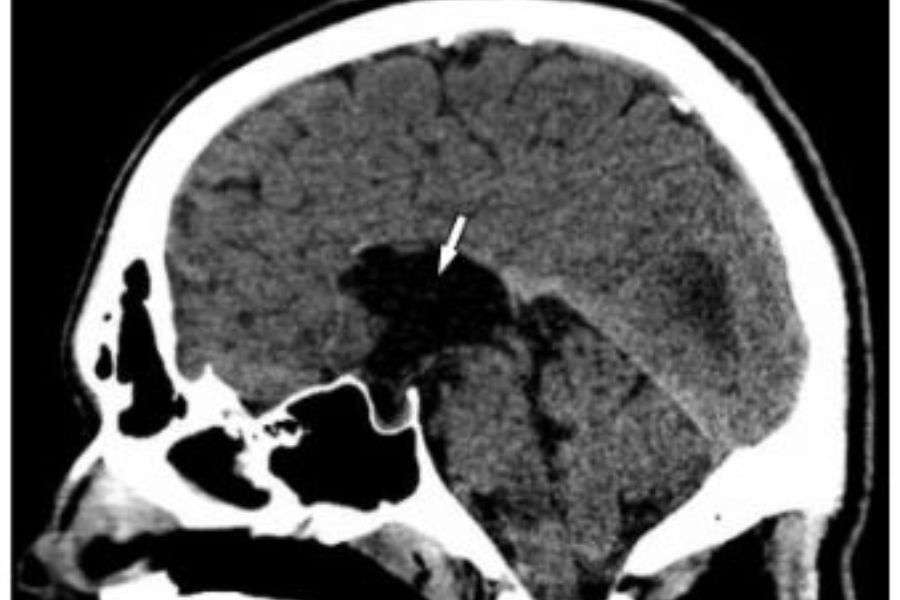Colpocephaly
Overview

Colpocephaly is a rare congenital condition characterized by an enlarged occipital horn of the lateral ventricles and associated neurological abnormalities.
Although typically diagnosed in infancy, it is exceptionally rare to diagnose it in adulthood without any related clinical symptoms. Recently, a case of colpocephaly was reported in an asymptomatic adult who was diagnosed incidentally in the emergency department.
To the best of our knowledge, this is only the ninth reported case of colpocephaly in an asymptomatic adult and the first to be described in the emergency medicine literature. The diagnosis of colpocephaly in adulthood highlights the need for further research and awareness of this condition.
Symptoms
• Developmental disabilities, including cognitive and intellectual impairment.
• Difficulty with coordination and motor function, leading to poor muscle tone and difficulty with movement.
• Small head size (microcephaly), which may be noticeable at birth or during infancy.
• Vision problems, including poor visual acuity, strabismus, and nystagmus.
• Speech and language difficulties, including delayed speech and difficulty with articulation.
• Hearing problems, including hearing loss or difficulty processing auditory information.
Causes & Risks
• Colpocephaly has various possible causes, including shunt treatment of hydrocephalus, genetic disorders, underdevelopment or lack of white matter in the cerebrum, exposure to toxic substances, infections, or radiation.
• Developmental disorders in premature infants and intrauterine disturbances during pregnancy can lead to colpocephaly.
• Premature babies, especially those born with hypoxia or lung immaturity, are at higher risk of developing colpocephaly.
• Diagnosing and treating a medical condition in its early stages is of utmost importance to avoid the risk of complications and enhance developmental outcomes.
• Vigilance for signs of colpocephaly in infants is essential, and medical attention should be sought if any symptoms are present.
• Despite multiple possible causes, colpocephaly does not have a single definitive cause, highlighting the complexity of its etiology.
Test & Diagnosis
• Medications are essential during flares to manage symptoms.
• Skin creams, gels, and ointments can ease pain and inflammation when applied directly to sores.
• Mouth rinses with corticosteroids help alleviate pain from mouth sores.
• Eyedrops containing corticosteroids or anti-inflammatory agents reduce eye redness and pain.
• Topical treatments target specific symptoms, providing localized relief.
• Proper medication management is vital for controlling symptoms during Behcet's disease flares.
Treatment
• Characterized by an abnormal enlargement of the occipital horns in the brain's lateral ventricles.
• Often diagnosed during prenatal ultrasounds or after birth.
• Healthcare providers recommend further tests like CT scans, MRIs, or ultrasounds for diagnosis.
• Tests determine severity and guide treatment options.
• Early intervention, therapy, and medication can improve symptoms and quality of life. No known cure.
• Treatment may involve speech and occupational therapy, physical therapy, and medication.
Living With
It's important to stay in touch with your child's healthcare provider to ensure they receive the necessary support and resources for a healthy life. When facing a diagnosis of colpocephaly in your baby, it can be challenging, but discussing their symptoms with the healthcare provider is essential.
They can suggest treatments and therapies to manage symptoms, collaborating with you to maintain your baby's health. Your child's healthcare provider is a valuable partner, so never hesitate to contact them with any concerns or questions.
Remember, proactive communication and collaboration are vital in navigating this journey towards your baby's health and well-being.
Complications
• Colpocephaly is a rare neurological condition affecting brain development.
• It is characterized by microcephaly and impaired intellect.
• Symptoms may include movement abnormalities, muscle spasms, and seizures.
• The cause is believed to stem from disruptions in fetal brain development during pregnancy.
• Diagnosis typically involves magnetic resonance imaging (MRI) of the brain.
• Treatment options include medication for seizures and muscle spasms, along with physical and occupational therapy for motor function improvement.

The Content is not intended to be a substitute for professional medical advice, diagnosis, or treatment. Always seek the advice of your physician or other qualified health provider with any questions you may have regarding a medical condition.
Know more about
Our Healthcare Planner
Personal Health Planner at BNC is a support staff who listens to your concerns and connects you with a Neuro Care provider. They prioritize your needs and create a trusting relationship between you and the provider.
Three fundamental values we can assure you:
1. Personalized Healthcare.
2. Most advanced robotic therapies
3. Transparent pricing





